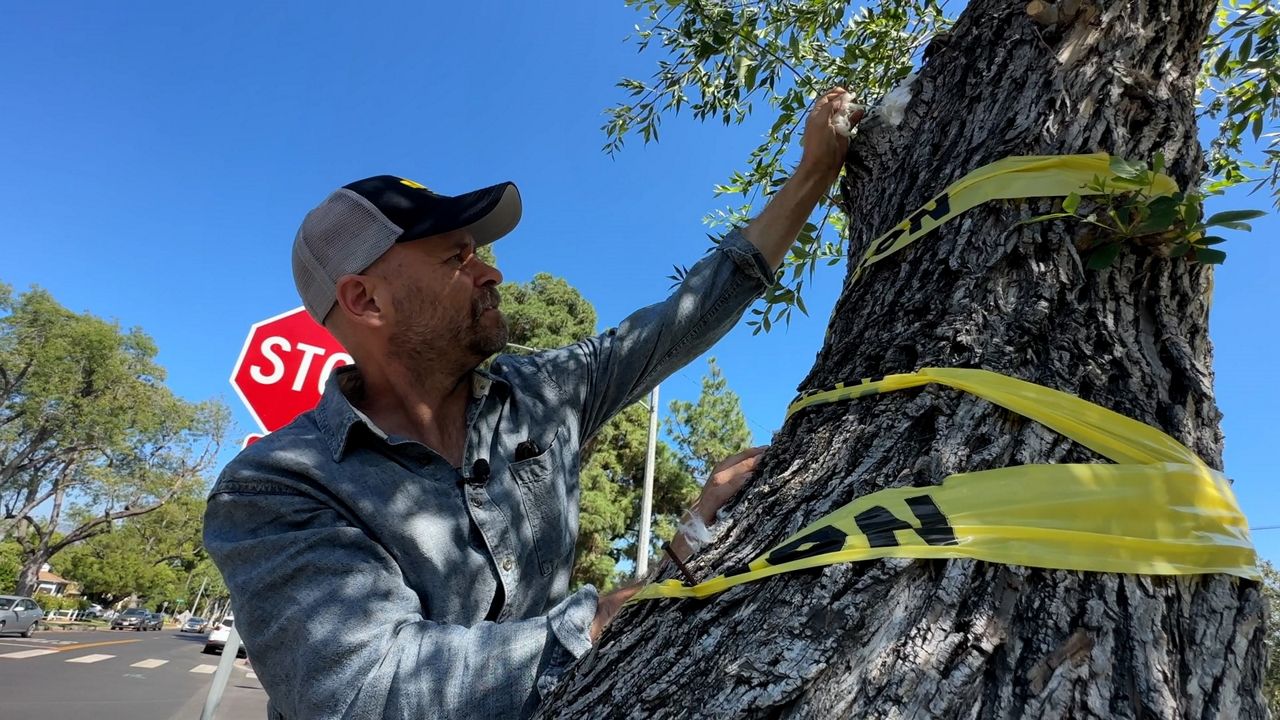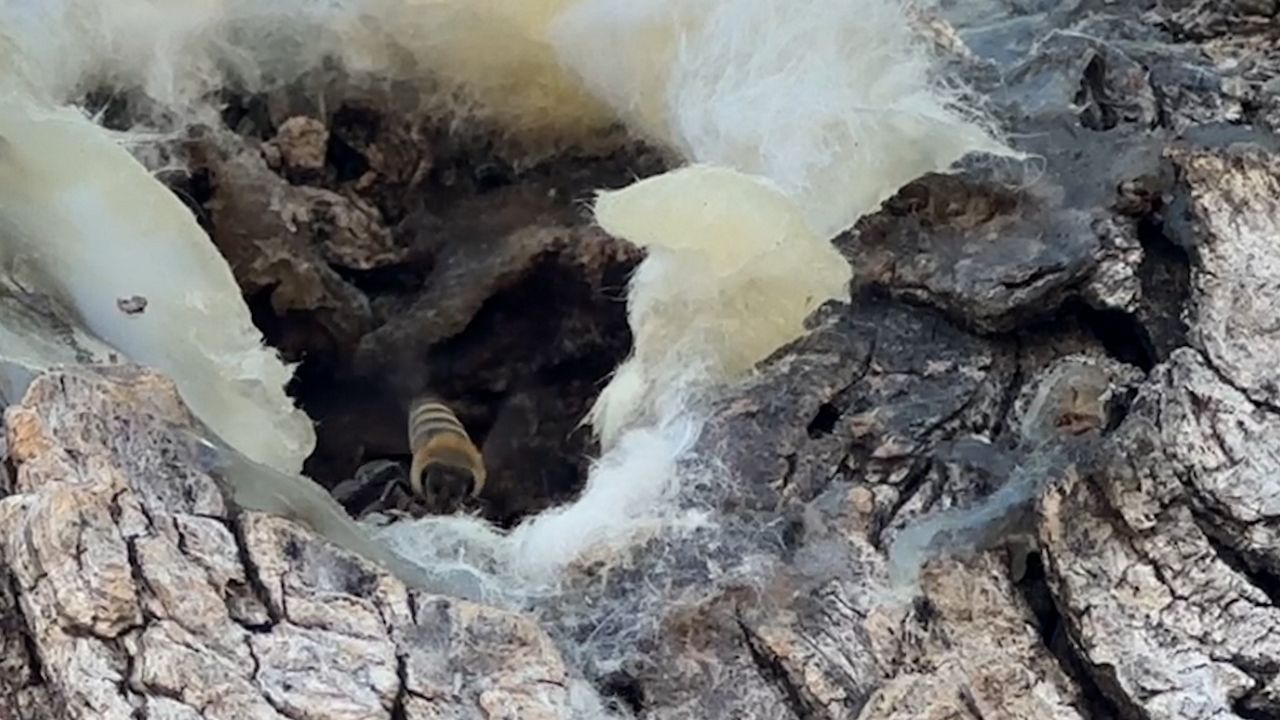BURBANK, Calif. — Walking down Clark Avenue in Burbank near busy Verdugo Park, it’s impossible to miss a particular tree.
It’s wrapped in caution tape and bears a makeshift sign written on a paper bag that’s been stuck on the bark with thumb tacks.
Brandon Perrin put a sign there, a message to the person who interfered with what had been an active beehive.
“To whomever plugged up this beehive with cotton and wax, you’ve killed them all,” the sign reads, although the substance used turned out to be silicone.
Perrin doesn’t own the tree — the city of Burbank does — but it sits in front of his house.
He personally didn’t mind the bees, but as the father of a toddler, he knows lots of families with children walk past on their way to the playground across the street from his house and he realized this corner might not be the best spot for the colony.
He contacted the city, and when they looked at the tree, they realized they’d need to call in an expert.
A work order was issued, but before they could get an expert out, someone came overnight, Perrin suspects, and plugged the two holes the bees were using to enter and exit the hive.
He was stunned.
“It was it was heart wrenching, you know, especially to see the bees still trying to go in there,” Perrin said. “It was heart wrenching and frustrating to be honest.”
After he put up the sign, someone came by removed the cotton, and Perrin was relieved to see at least some signs of life.
Far fewer bees than previously, he said, but activity nonetheless.
That was at 11 a.m. on Tuesday and by 3 p.m., it was a different story.
Byron Levy is a beekeeper and bee remover with a company called Save My Bees.
“You can feel the warmth right here,” he said, placing his hand on the tree trunk just below the opening.
Levy estimated the hive was about 8 inches and diameters and maybe a few feet long, housing potentially 10,000 bees — a smaller hive, he said.

He arrived at Clark Ave. a few hours after Spectrum News spoke with Perrin to find the hive had been plugged again, this time with what Levy thinks is caulk.
“This was done maybe about 15, 20 minutes ago,” he estimated, touching the substance that still hadn’t solidified. “It makes me sad. I mean, it just makes me sad.”
As an expert, he says there are ways to safely and humanely remove a hive from inside a tree and relocate the colony.
It’s complicated, but it’s possible.
However, with their entrance sealed off, he doubted the bees would survive.
“They are probably scrambling to look for another way out of this tree,” he explained. “You know, you’re suffocating a hive and they’ll eventually die.”
Of course, Levy understands, bees are a tricky issue. According to the National Institutes of Health, severe life-threatening reactions to bee stings occur in roughly 3% of adults and even fewer children.
What’s far more common, he says, is the fear.

“A lot of people are afraid of insects,” Levy said. “They just need a little bit of education on how bees operate and that they’re not just going to attack anyone that walks by.”
On the other hand, he says, they serve an extremely important role in our overall ecosystem, pollinating crops locally and around the world.
In fact, the U.N. estimates that a third of the world’s food production depends on bees.
The City of Burbank says residents who spot a hive should report it to the Parks and Recreation Department. In a statement, Communication Manager Jonathan Jones stressed the city’s commitment to taking a humane approach saying they favor relocation over extermination.
“The City of Burbank deeply recognizes and values the integral role that bees play in our environment,” he wrote. “Our food supply, agricultural industries, and even our scenic landscapes owe much to these diligent insects. We urge all residents to join us in our efforts to understand, appreciate, and protect our bee population.”
For trees on personal property, Levy says the best bet is hiring someone trained in both bee removal and beekeeping to ensure the well-being of the colony.
“Look up your local beekeeper Association and you’ll probably find some good resources and tools to inform yourself and to get help,” he recommended.
As for Perrin, he wishes the city had moved a little faster to remedy the situation before the someone had a chance to take matters into their own hands.
“We’re even up for them taking out the tree and taking it up to the forest and letting them thrive,” he said. “That’s worth it to us, because bees are important to our future.”
That was one of the options he says city employees had mentioned, but unfortunately, given that the tree has been tampered with twice, there may no longer be a viable colony left to relocate.



